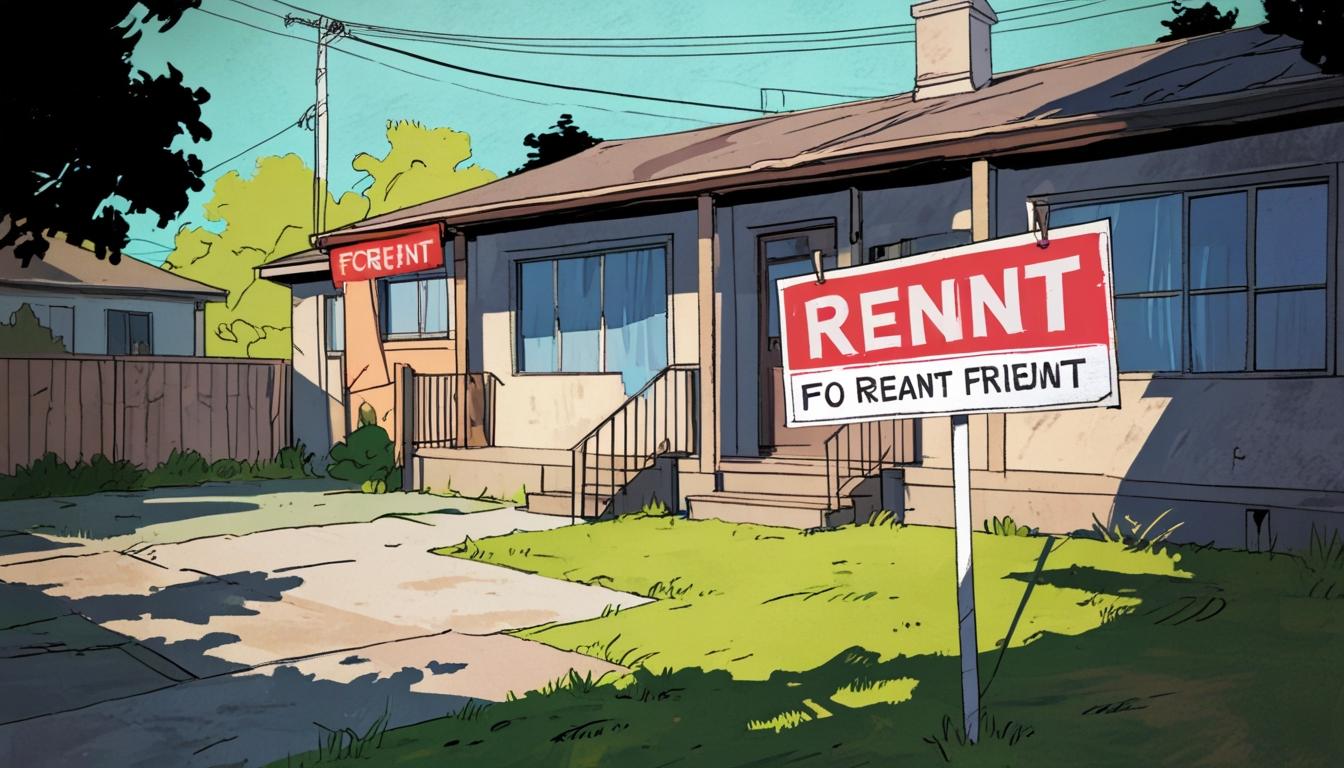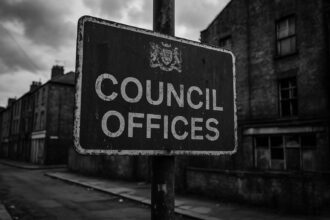Intensifying calls for new laws to regulate short-term holiday lets in Northern Ireland follow alarming reports of exorbitant rental prices, exacerbating the local housing shortage.
Calls for new legislation to regulate short-term holiday lets in Northern Ireland are intensifying following reports about a property in East Belfast being advertised online for £19,000 for a ten-week stay. The appeal comes amid claims by local officials that the rise of such rentals is exacerbating housing shortages and negatively impacting the community.
Ruth Brooks, a councillor representing the Titanic area, has voiced strong criticisms regarding the growing number of short-term lets. She highlighted the ongoing housing crisis in Belfast, where the Northern Ireland Housing Executive recently reported that over 10,000 individuals are living in housing stress. Brooks noted, “Every week I hear from my constituents who have insufficient points to be considered for a social property but feel that a private rental is outside of their reach. With these figures, I’m not surprised.”
In her discussion with the Local Democracy Service, Brooks revealed that she discovered a listing on Holywood Road, offering accommodation for two adults between early June and mid-August at a staggering price of over £19,000. This situation underscores her broader concern that many residents are struggling to find affordable housing, often resorting to “sofa surfing” or living in crowded conditions.
The councillor pointed out that while Houses in Multiple Occupation (HMOs) are subject to strict housing regulations, Airbnbs and similar short-term rentals are classified differently under tourism rules, thereby escaping the same level of scrutiny. Brooks stated, “While Tourism NI inspects Airbnbs, this is only for quality, not for how many operate in a given area.”
She emphasised the need for tighter regulations from the Economy Minister, warning that without legislative changes, the issue of short-term lets could continue to worsen, further disadvantaging local renters. “Why would you put your house on the rental market when you can hand it over to an Airbnb and make ten times the amount?” she asked, drawing attention to the economic incentives driving property owners to favour short-term rentals over long-term leases.
Brooks elaborated on the regulatory disparity, noting the lack of restrictions on the number of Airbnbs, unlike HMOs, which are capped at 10 percent occupancy per street. She articulated her concerns about the disconnect between the housing strategy from the Department for Communities and the current classification of short-term lets as tourism-related, arguing that this represents a significant loophole.
In addressing public concerns about housing availability, Brooks refuted common misconceptions that foreigners are the primary cause of housing shortages, stating instead that the proliferation of short-term rentals is a more significant factor. She provided examples of residents, including a woman and her three children, who have been forced to seek temporary accommodation far from their homes due to a lack of available housing options in Belfast.
Brooks concluded by reiterating the urgent need for the Economy Minister to take action, indicating that the government had previously indicated a possible review of legislation during discussions in August 2024. As the situation in East Belfast unfolds, the debate over the implications of short-term holiday lets on the local housing market is likely to continue.
Source: Noah Wire Services
- https://www.hostaway.com/blog/airbnb-in-belfast/ – This article provides information on the current regulations for short-term rentals in Belfast, including the need for Tourism NI certification and the distinction between these rentals and traditional housing regulations.
- https://www.bnbcalc.com/blog/short-term-rental-regulation/Belfast-UK-Guide – This guide outlines the regulatory framework for short-term rentals in Belfast, including the requirement for certification from Tourism NI and the potential need for planning permission.
- https://www.citizensinformation.ie/en/housing/owning-a-home/home-owners/renting-your-property-for-shortterm-lets/ – Although focused on Ireland, this resource highlights the broader context of short-term letting regulations in the region, which can inform discussions about similar issues in Northern Ireland.
- https://www.belfastcity.gov.uk/News/News-landing-page/News-landing-page.aspx – This is the official website of Belfast City Council, which would provide updates on local housing policies and regulations, including those related to short-term rentals.
- https://www.nidirect.gov.uk/articles/housing-shortage – This resource discusses the housing shortage in Northern Ireland, which is exacerbated by the rise of short-term rentals, as highlighted by local officials like Councillor Ruth Brooks.
Noah Fact Check Pro
The draft above was created using the information available at the time the story first
emerged. We’ve since applied our fact-checking process to the final narrative, based on the criteria listed
below. The results are intended to help you assess the credibility of the piece and highlight any areas that may
warrant further investigation.
Freshness check
Score:
9
Notes:
The narrative references recent discussions from August 2024, indicating it is relatively current. However, without specific dates for the Airbnb listing or recent updates, it cannot be confirmed as entirely fresh.
Quotes check
Score:
8
Notes:
Quotes from Councillor Ruth Brooks are included, but no earlier references to these specific quotes were found online. This suggests they might be original to this piece, though it’s possible they were spoken elsewhere without being documented online.
Source reliability
Score:
8
Notes:
The narrative originates from a reputable local news source, The Irish News, which generally provides reliable information. However, the lack of national or international coverage might affect its broader credibility.
Plausability check
Score:
9
Notes:
The claims about housing shortages and the impact of short-term rentals are plausible and align with common issues in urban areas. The specific example of an Airbnb listing for £19,000 supports the narrative’s plausibility.
Overall assessment
Verdict (FAIL, OPEN, PASS): PASS
Confidence (LOW, MEDIUM, HIGH): HIGH
Summary:
The narrative appears to be current, with quotes that may be original. It originates from a reliable local source and presents plausible claims about housing issues. Overall, the information seems accurate and relevant to ongoing discussions about short-term rentals.













